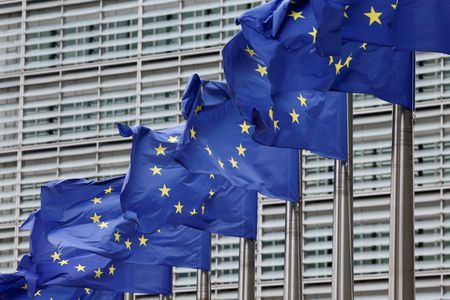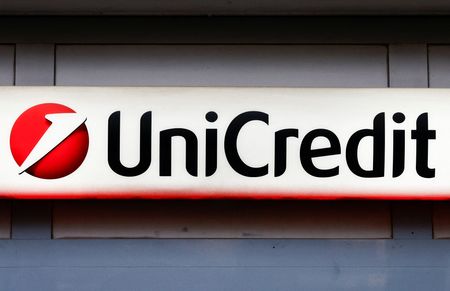By Kate Abnett
BRUSSELS (Reuters) -A committee of European Union lawmakers endorsed on Monday the EU’s plan to cut net planet-warming emissions by 90% by 2040 and water down the effort required by domestic industries by allowing them to use foreign carbon credits for 5% of the goal.
EU countries’ climate ministers struck a final-hour deal on the legally-binding climate goal last week, just in time to avoid going empty-handed to the U.N.’s COP30 climate summit, which starts on Monday in Belem, Brazil.
The target would let countries buy foreign carbon credits to cover up to 5% of the 90% emissions-cutting goal – weakening to 85% the emissions cuts required from European industries.
A majority formed of centre-right, socialist and green lawmakers in the European Parliament’s environment committee backed the deal on Monday, with 49 in favour, 33 against and 6 abstentions.
The committee rejected a proposal by the Patriots for Europe, a far-right lawmaker group, to scrap the climate target completely.
EU countries and lawmakers must negotiate the final target, before it can be fixed into law. Before those negotiations can start, the proposal has to win majority support from the full EU Parliament on Thursday.
A 2040 target to cut domestic emissions 85%, against 1990 levels, falls short of the 90% the EU’s scientific advisors had said would be in line with limiting global warming to 1.5 Celsius.
The EU goal would still be one of the most ambitious climate change commitments among major economies worldwide.
It reflects a hard-fought political compromise among EU governments, some of whom have sought to weaken EU climate measures against a tough geopolitical backdrop that has left them scrambling to increase defence spending and support industries reeling from U.S. tariffs.
Ondřej Knotek, EU lawmaker with the far-right Patriots for Europe group, said the deal “makes, in my eyes, the life of citizens little bit more expensive”.
Green lawmakers had opposed the use of foreign carbon credits. However, they said they had managed to insert stronger rules, including that the EU would only buy credits from countries whose national climate plans are aligned with the Paris Agreement, which commits governments to try to limit temperature rise.
(Reporting by Kate Abnett; Editing by Nia Williams)











